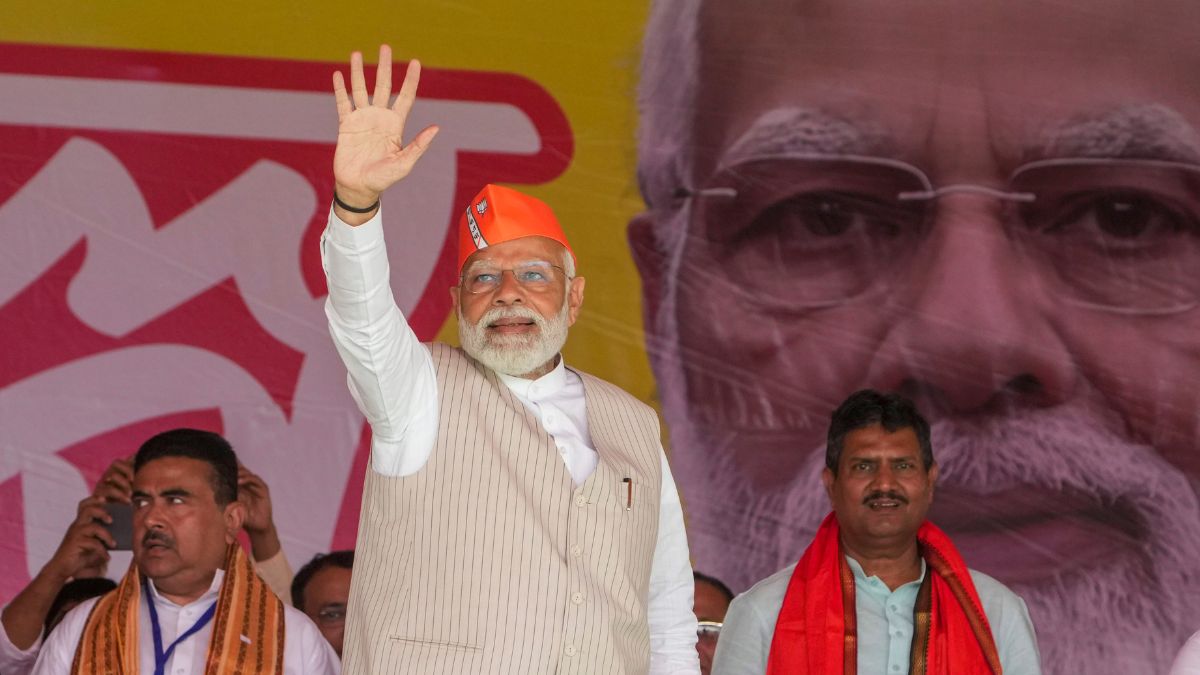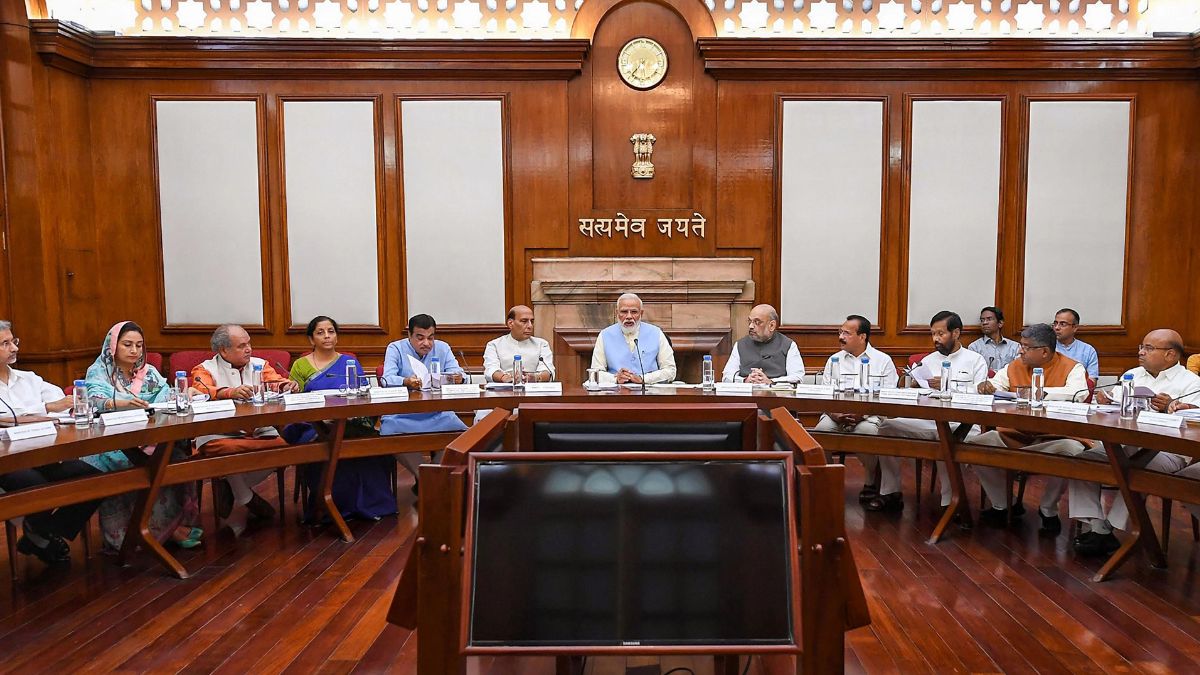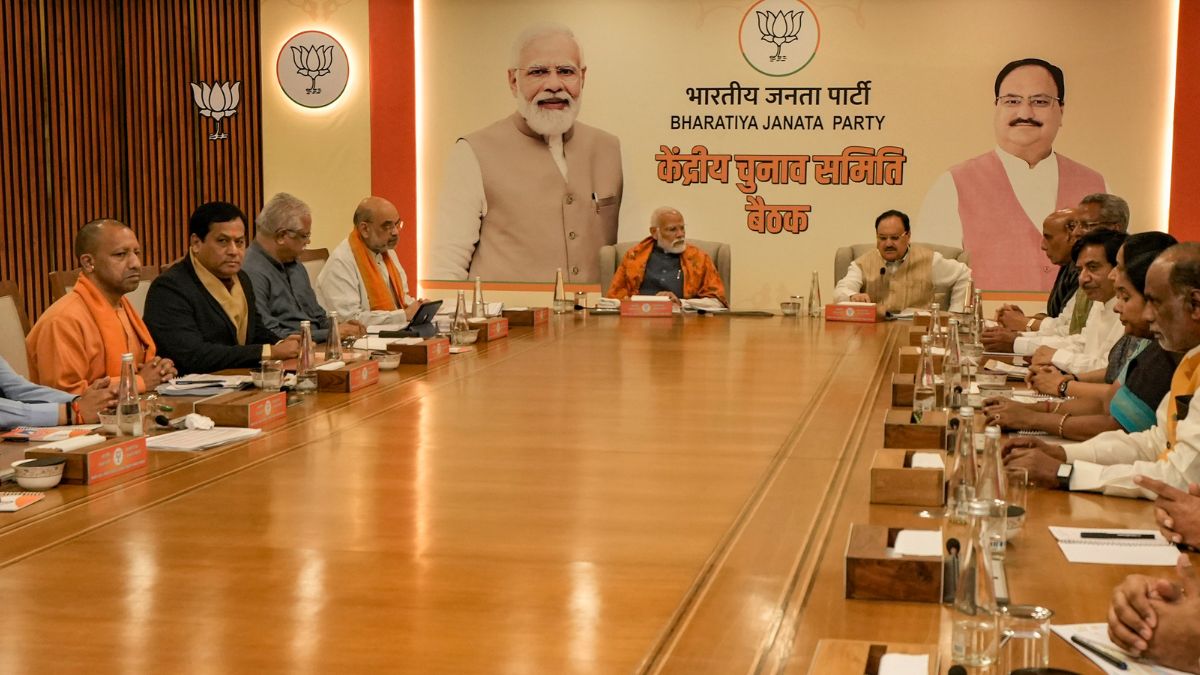Elections are critical political barometers that judge the mood of the people on many counts with education being an important one. As Gujarat’s third-largest city gets ready to vote to elect its representatives for the new state Assembly, the state of education in erstwhile Baroda has left many concerned citizens worried.
In the heart of the city of Vadodara stands the Maharaja Sayajirao University, alma mater to Vinoba Bhave, the spiritual successor to Mahatma Gandhi, Venkatraman Ramakrishnan, who won a Nobel Prize in Chemistry in 2009, Dadasaheb Phalke, father of Indian cinema and Lord Meghnad Desai, economist and Labour politician. Days before the city with five Vidhan Sabha constituencies casts its vote in the Assembly elections, Firstpost reached the university’s campus to find out what hopes and despair this round of polls are attached with.
Sayajirao Gaikwad III, Maharaja of Baroda State from 1875 to 1939, could have drowned his life in single malts and patted shiny black stallions around tropical foliage and cold water fonts inside a palace comfortably ensconced. But Sayajirao was an educationist, a believer that higher learning of science, of maths, of Sanskrit and the arts, can bring social reform and put India on par with the West. He brought a 20-year-old Sri Aurobindo back from Cambridge to India to inspire a generation of young Indian patriots and patronised Bhimrao Ambedkar whose ink lent to the letters of independent India’s Constitution. Sayarijao retains his hold on the psyche of the Vadodara.
The Firstpost team met II Pandya, Associate Professor of Structural Engineering and former president of Baroda University Teachers’ Association. “There are more than 700 teaching posts that are vacant, out of the 1,278 posts sanctioned by the Government of Gujarat. Most departments are being run by less than 50 percent full-time staffers,” he admitted that the Engineering department is better placed than other departments right now but most of its senior faculty, including himself, is retiring in 2020 and that worries him.
The Department of Sociology’s first Head of Department was MN Srinivas, who gave the discipline the concept of ‘Sanskritisation’ revealing the fluidity within the Indian caste system. It is now being run by one junior lecturer and four temporary teachers. “There are nearly 40,000 students enrolled in the university but our sanctioned strength is only about 18,000. The additional students are studying in ‘self-financed’ courses.”
Pandya explained that as the university has been diversifying since the 1980s and the demand for courses like BBA, BCA, MCA, diplomas in management and languages like French and German was growing but the state university received no new sanctioned post after 1984.
So, the trend of self-financed courses started. In this, teachers are hired and the public university charges higher fees from the students to run the departments. “While the regular BCom costs Rs 5,000, the self-financed BBA program costs up to Rs 45,000. The teachers are appointed on fixed salaries for eight to nine months and every year new teachers come and go. Sometimes, the full-time staff also lends itself to these courses to make extra money. There are more than 25 self-financed courses,” Pandya said. He believes that the parent-teacher connect and the overall quality of learning suffers at the hands of such functional temporariness. Some faculty members, more than others, feel bad that ‘higher education’ is now ‘hire education’ and the vision of the Maharaja is being blinded.
Walking past the university’s bold byzantine arches and brick red and polychrome Mughal domes towards the Gujarati department, Bharat Mehta waits to share his story. “The career advancement scheme under which we become professors require that we must have at least three articles published in journals. I came to MS University as a reader in 1998, authored 30 books, earned seven national fellowships and four awards from Gujarat’s Sahitya Academy. I fought a case against the state government in the high court and finally earned my professorship in 2010,” he alleged that critical thinking in academia is being stifled.
A rejection of difference of opinion evolves, slowly and surely, into a culture of dissent. This suspicion towards anything that the government does also harm the university, for instance, the Mukhyamantri Yuva Swavalamban Yojana, intended to provide financial aid to about 70,000 college students from less privileged backgrounds, isn’t properly implemented in MS University.
The ideological gap between the university and the government widened after the Gujarat Higher Education Council Bill 2016 was passed. As per this bill, 15 ex-officio members including the chief minister, two ministers, secretaries of education, finance, industries and labour department, among others could form a council that would ‘carry out effective monitoring of the academic, administrative and financial performance of universities and affiliated colleges and to recommend remedial measures for better performance’. They were vested with sweeping powers to regulate higher education. It is mentioned in Section 15 of the Bill that the government could also ask the universities to implement reforms suggested by the council.
“Despite resistance from teachers and andolans on Baroda’s streets; the act was signed by the governor. Such an environment of antagonism between the state and the educators isn’t healthy for any society,” said Professor Mehta.
Deeptha Achar of the English Department tells Firstpost there should be a fine balance should be maintained between autonomy and adherence to state police. “For this, what’s required is fine administrators, fine teachers and an out-of-the-box approach,” she said. The alienation of educators with the government is furthered by a denial of secure jobs and satisfying salaries. Nivya Patel completed her MA from Gujarat University and her Phd from Saurashtra University, with six gold medals in the early 90s. Today, she is a member of the Adhyapak Mandal with nearly 300 others who are fighting for regularisation of their jobs. She lives around the university campus but teaches at a government college in Anklav, 40 minutes from Vadodara, and gets paid Rs 18,000.
Just outside the university gates, at the Sayajiganj circle, a group of people holds candles and a banner that read ‘All Vadodara Vali Mandal Association’. This is Vadodara chapter of All Gujarat Vali Mandal, an association of parents resisting against the arbitrary and rapid fee hike by private school operators across the state. In 1906, Sayajirao became the first Indian ruler to introduce free and compulsory education in the state of Baroda. Today, parents holding messages like ’education is not a business’ on its streets.
Present among the crowd was advocate Kishore Pillai who explained the matter. There are two sets of cases filed in the high court, one filed by the association of schools in Vadodara which challenges the act called The Gujarat Self Financed Schools (Regulation of Fees) Act, 2017 that prescribes an upper limit of Rs 15,000, Rs 25,000 and Rs 27,000 on primary, middle and high school education respectively.
“The bill was introduced with good intention by the government but because the private school owners resisted, it hasn’t come to fruition,” said Pillai, who is representing the petitioner who approached the court to direct the government to implement the rule through Secretary, Education.
The petitioner, Pavitra Mukhopadhyay, a social worker, said he had pinned all his hopes on the judiciary. “Out of the roughly 160 private schools in Vadodara, about 45 are using muscle power and political clout to reject the government-prescribed fee scale. There’s an urgency in the matter because four students of Nalanda International School were recently sent back from the premises of the school only because the parents refused to pay the illegally-collected higher fee,” he revealed that the list of schools not obeying the government’s rule include Navrachana International, DR Amin Memorial, Sant Kabir, Cynus World School and Delhi Public School.
“The act has got an intrinsic way of checking the implementation, this is through the chairman of the fee regulatory committee. In Vadodara, the chairman is a retired judge of the high court. Then why isn’t he taking disciplinary action towards who are coming in the way of responsible implementation of an act formed by the respected government?” asked Advocate Pillai.
There are more than 120 special civil applications that have been filed by school managements against the Fee Regulation Act, the hearings of which have been clubbed together. “The oral order by the court on these applications don’t mention any interim order restraining the act, they only offer a one-month extension to file proposals for an enhanced fee, which was over in June,” said Pillai. The All Gujarat Vali Mandal has similar chapters in Rajkot, Surat and Ahmadabad.
Among the protestors here was Vadodara’s ex-Mayor Ratilal Desai. “Whether it’s Sayajirao’s town or Jyotiba Phule’s town, if the government doesn’t show empathy towards the education system, people will suffer. The problem with Gujarat is that there is only party and the opposition has remained weak. Even if the opposition wins, it’ll win because of people’s frustration and not on its own merit,” he told Firstpost. Some parents in the group, dodging the hot wax on melting candles, mentioned that they’d like the approach the Aam Aadmi Party adopted in Delhi; the management of 449 private schools was taken up by the Delhi government in order to bring in transparency into their accounts.
“In that scheme, classes were not disrupted. In Gujarat, students are being sent back from schools because parents simply want the schools to obey a government rule. It is really quite strange,” said Mohd. Hanif, who disclosed that there’s a 10 per cent increase in fees every year and he shells out roughly Rs 35,000 per year on each of his three school-going children. He often wonders if he’ll be left with any money by the time they get to college.
But the Aam Aadmi Party’s presence in Vadodara weakened after its leader Chinnam Gandhi recently resigned and joined the Congress. Speaking to Firstpost, the Convener of AAP in Gujarat, Kishore Desai said that the pace of privatisation in education is scary. “To adopt the Delhi model here in Gujarat, it is also necessary to parallelly improve the quality of government schools. There’s a shortage of government school teachers who are also put on election duty or are seen conducting corporation surveys or doing census work,” he noted that privatisation can be fought by strengthening the backbone of public education - the teachers.
The Gujarat government does conduct an annual initiative to evaluate primary education scenario and grade primary school teachers across the state called Gunotsav. As per Statistics of School Education (2010-2o11), conducted by the Ministry of Human Resource Development in 2010-2011, in Gujarat, out of the 3575 schools, 227 were run by the government, 74 by local bodies, 1,863 by private-aided bodies and 1411 by private-unaided bodies.
Naresh Shah, President of the All Gujarat Vali Mandal, told Firstpost that privatisation of education doesn’t necessarily mean an improvement in the quality of education. “Private schools often hire less qualified teachers on lower salaries,” he recited the group’s slogan of Shiksha ej Saacho Vikas (Education is the true meaning of development).
Bhavna Sapkal, President of the Vadodara Vali Mandal, leading the march, said that schools are refusing to share the report cards of those wards whose parents aren’t willing to pay the higher fees. “The schools are aware of the vulnerability of these parents and this is how privatisation is turning parents into slaves of the system,” she explained.
The frustrated parents too opened up. Men who identified themselves as Deepak Thakkar and Sanjeev C Solanki said they pay an annual school fee of Rs 80,000 and Rs 40,000 respectively. “If education has to be privatised, then they should treat us like consumers and ask us to pay the fees after the semester is over and the fee scale should be proportionate to the child’s result,” said Satyam Sharma, who pays Rs 40,000 for his two children who are still in primary school.
“When we started this Vali Mandal in March, we found out that the books the schools forcibly sell us are available in the open market for as much as 30 percent of the price. On a state-level, this is a figure that runs into crores,” Sharma pointed out.
Sayajirao unleashed education like an iron sword to tear through the evils of untouchability and child marriage. Today, Vadodara is left with a rusted sword and the story of a dead king.


)




)
)
)
)
)
)
)
)